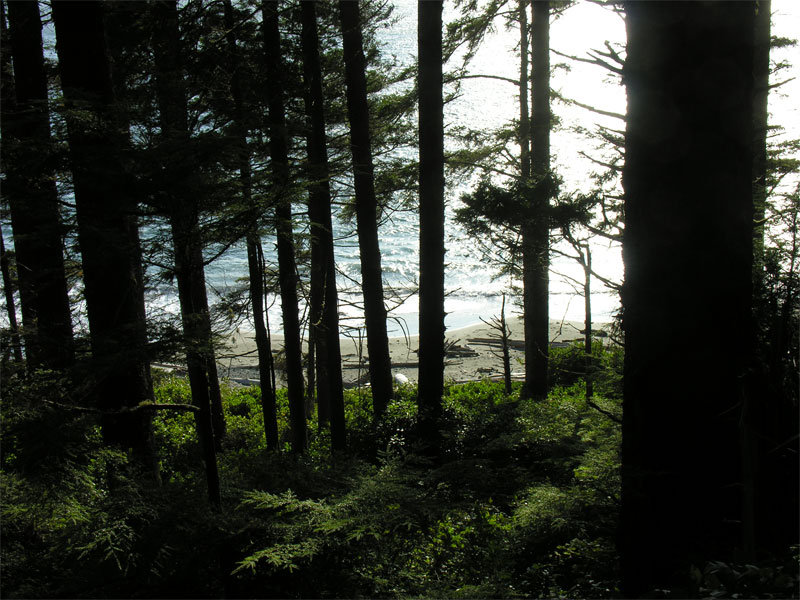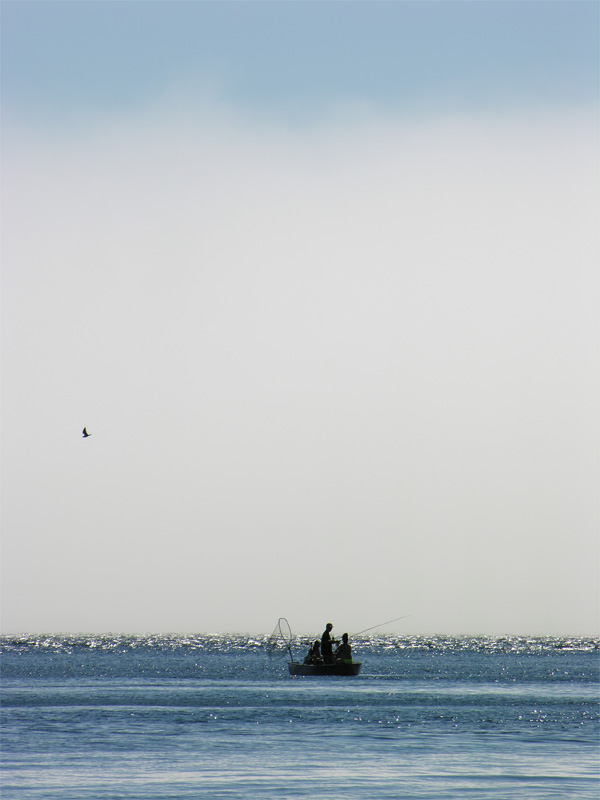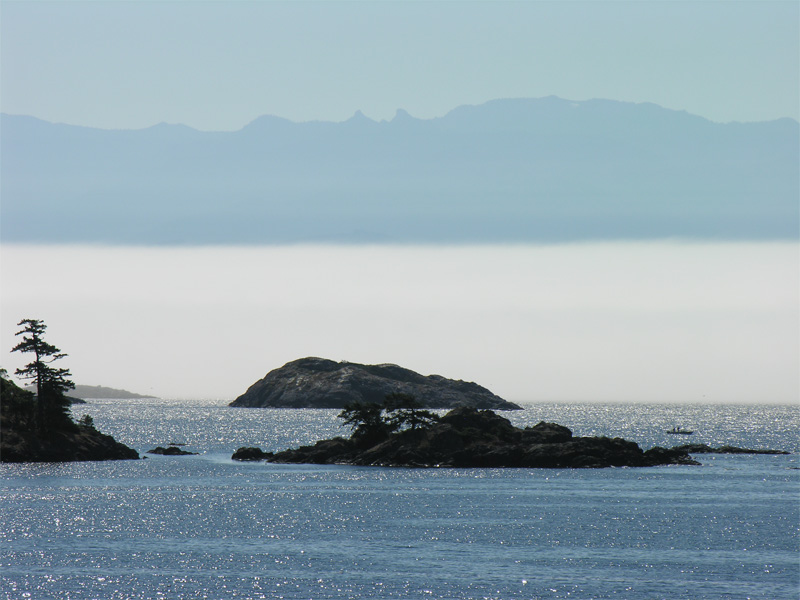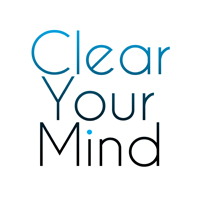LOGGER AND ENVIRONMENTALIST
A friend of mine worked for a logging company. His job was to fly or drive to prospective areas that hadn’t been logged yet, determine if and how they could be logged, what impact logging would have on that environment, to that area’s wildlife, plant life, beauty, he was responsible for the complete report. He was very environmentally conscious and responsible, both because he legally had to be on behalf of his logging company, and because he truly cared. He’d been a naturalist all his life, hiking, fishing, camping, conservation, he cared about keeping the forests and animals as safe as possible, balanced with humankind’s use of nature’s resources.

One day he walked into an environmental agency in a large city. He told them about his education, what he knew about the balance of the forest and how to protect it, and wanted to volunteer his time to help them however he could. They were receptive and friendly, interested in him, thought a gift from heaven had come through the door because he was so knowledgeable, and they were excited to have him on board.
Near the end of the conversation – actually what ended the conversation – they asked him what his job was. He told them what he did for the logging company. Immediately, they were angry and judgmental. He was the enemy! They were environmentalists, he worked for a logging company, and in their minds there was no way a ‘logger’ could care about the environment. Period. Here was a person openly offering to help as an industry insider, someone who could keep them informed of what new projects were in consideration, and ask them for their input into those… and they could not get past their already-known, their stereotyped ideas about ‘the enemy’. While he was dissolving the barriers between them, they were solidifying those barriers and making themselves into opponents.
My friend was smart, wonderful, caring, learned, had a ton of energy and really wanted to do things responsibly on behalf of the environment… imagine what that organization has missed, in losing him. Imagine what information and experiences the rest of us have missed, whenever we’ve ‘closed down a part of our openness’ upon hearing someone is a truck driver. Wealthy. Broke. ‘Special-needs’. Male. Female. Homeless. Christian. Jewish. Muslim. Mormon. Japanese. American. Mexican. A lawyer. Elderly. A child. A smoker. An alcoholic. Single. Married.
You have done this to people, and people have done this to you. I have done it too, but since I became aware of doing this, it almost never happens anymore. The habit is being erased in me, and when I enter a new experience, when someone new arrives in my life, I’m allowing myself to go into what is not already known by me, about them. I shut up, give up my preconceived ideas about it, open up, allow, explore.
Not doing so, is what makes us so limited in experience and knowledge. We form opinions, even if those opinions are ‘I don’t know much’, and then when something new arrives, we spend so much of our energy applying what we know and what we don’t know to that new thing. Almost none of our energy goes into giving in, dissolving ourselves into the new. So our sphere, somewhere along the way, stops expanding. Our heads create a capsule of knowledge, with a thick filter that all newness must try squeeze into, a globular mass of information that is a barrier to pure, open, new experiencing.
WHERE DID THAT CAPSULE COME FROM?
Many factors contribute to the gelling of this mass. Enough life goes by that we form strong egos, and our egos fuel themselves by telling us we’re pretty smart, we’ve had schooling, seen a lot of the world and life, have a lot of maturity and experience. We start to buy into that, believe it, bolster it and protect it. To open up wide again… that would be like saying we don’t know much, aren’t certain about things, right? We want to project how smart, skilled, strong, experienced we are, we want others to know we’re the goods, that we’re sure about ourselves and our knowledge. We can’t do that if we shut our mouths and stop telling people whatever we know about what they just said. Can we?
Another contributing factor is fear; when we used to let ourselves go into the unknown as children, we made a lot of mistakes, often got hurt, rebuked, we miscalculated, looked silly or stupid, became confused, were ridiculed. A lifetime of painful lessons eventually closes us down and forges our carefully-built defenses, our filters to receiving anything new into us, our hesitancy to experience the new openly.
Boredom is yet another factor; when we’re young a thing can seem new and fascinating, but by the time we’re adults we’ve seen it hundreds or thousands of times, so we are no longer open to any newness from it. We look at it, immediately apply it to the already-known compartment, and dismiss it, beyond simply taking note of it being there.
At some point along our growing lives, we did create a ‘capsule’. We learned enough to satisfy us that we know certain things, even know a lot about certain things. There is no sudden moment for this to happen, our knowledge and experiences gradually harden over time, into a gelled ‘I know this much’ feeling. Yes, we still learn new things each day, but there is a difference between how we learned when we were children, and how we learn now.
WIDE OPEN, VERSUS ‘CLOSED BUT PULLING THINGS IN’
When we were children, we were wide open. New experiences were the unknown. We were not taking new things and pulling them back into us, trying to fit them into the understandings we already have inside us; when we were children we dissolved inside, we gave ourselves up and went wide-eyed and openly into the new and unknown. We allowed what we already knew to become formless, so we could explore into each unknown. We dissolved as we went into it, rather than trying to pull it into us. We kept dissolving our borders, growing outward to experience another newness, and then another, and yet another. The reason children learn things so quickly compared to adults is because they give themselves into each new situation. They give themselves up. They don’t know a lot of things yet through their short life experience and learning, so it is easier to give up what thin and shaky learning they do have, and let all their senses open wide to explore into this new thing.
But eventually children learn and experience a lot, and become teens who have learned and experienced a lot more, and then adults who have learned and experienced even more. The capsule of knowledge becomes full and hardened over these years. The reason adults learn so slowly compared to children is because we have so much knowledge and experience already; the moment we encounter something new, instead of giving ourselves to it as we used to do, we try to pluck that experience from the world outside our sphere of knowledge, and pull it back into our sphere. We try to make it ‘fit in’ somewhere, make sense of it using knowledge we already have. It becomes like a piece of our mind’s jigsaw puzzle of knowledge; we try hard to match it to the pieces already inside there… rather than just letting it enter freely.
We do this hundreds of times each day; we ask someone we just met what their job is, and when they tell us… we immediately try to fit it into the category and details we already think we know about that job. That fact. That news. That topic. That item. That person. We immediately try to pull up any information we have on it, stored in the memory banks of what we’ve read, heard, any direct or indirect experience we have with it. From the moment we see or hear anything new, any new experience we have is sucked into that capsule we call ‘what we already think about it’. A few details might be added if we really listen, we might ask a few questions, but we’re still grabbing each new bit of information and trying to add it, fit it somewhere within our already-known.
This is where our growth and clarity slow down, where we become so limited, where any new knowledge must now pass through a thickly-formed filter of our already-known knowledge. Someone new we meet is an artist… so we immediately try to see how they fit in to all the stereotypes we’ve learned about artists. Are they flaky, broke, wearing beads, acting artsy? And when something doesn’t mesh with that, we have to point it out; long ago when I was an artist and told someone about it, the most common response was, “You don’t look like an artist.” This is because I was also a bodybuilder, martial artist, and a dozen other things that didn’t fit into someone’s category of what an artist looks, acts, and talks like.
IT SHUTS YOU DOWN, IT SHUTS THEM DOWN
I told someone that I had finally begun my first ‘blog’; I was feeling so happy to finally begin that project and I wanted to tell people all about it. I only mentioned it was my first blog to preface telling this person what my project was about. She immediately cut my sentence short with the interruption, “I just don’t understand all that computer stuff, is that a website or what?” She continued to rant about how much she didn’t know about ‘websites or that technical stuff’, and by the time she finished the rant and took a breath… my feeling of wanting to tell her about my blog – what it is about – had left me. It left gently, I let go of things easily, I just felt that this was not the time. She had ‘closed me down’ with her capsule of ‘here’s what I already know and don’t know’, and she was not really open to hearing what I was wanting to say. She was trying to package anything I said into a compartment in her head, a compartment labelled ‘I know this, I don’t know that’, but she had not opened any compartment into the new, into openness, into going someplace without categorizing it, into simply listening openly to what I was saying. When we parted… she knew nothing about what I was going to tell her. Zero. She shut down my anticipated enjoyment of telling her, and she shut down her learning of something new.
In my early years of transition from my old known self into my new unknown self, this ‘being shut down’ was especially common, since I was acting very differently from the person I used to be, a person people had ‘known’ for decades. I was doing things as I felt like it, exploring newness. If I didn’t feel like talking for a day or two, I wouldn’t. Later I would tell someone about that, and they’d blurt, “Oh, you were taking a vow of silence, eh?” No, I just didn’t feel like talking for a couple days. But they would be immediately trying to fit my sentence into something they already knew about, what I’d just said would trigger them to search their memory banks for the next nearest stereotypical statement that matches it. They’d label it, and limit it, to a mistaken ‘vow of silence’, because when anyone stopped talking for a while, that’s the only term they’d ever heard for it, so that’s all it could be… right? And they’d close themselves off to hearing about why I chose to not talk for awhile, and to hearing about the wonderful lessons I learned from doing so. They turned it into an already-known, a religious thing, a weird thing, a label based upon whatever they already thought about it. They did not go openly into the new, the not-known.
I would tell about the first time I sat with my eyes closed, breathed deeply and counted to one hundred slowly, and they would say, “So you were meditating,” and would tell me whatever they knew about meditation, and would usually suggest a book or author. I tell people about my HelpMePlease or ClearYourMind websites, and they might ask a couple brief questions, and then start talking about meditation or suggest a few of the books they know about by the latest authors in the spiritual or self-help or religious fields. Or they’ll say, “But you don’t look that spiritual.” Ha.

GO OPENLY INTO THE NEW
You can dissolve your capsule, your closed perceptions of the already-known. You are now an adult, you are no longer a child who cannot clearly discern safe things from harmful things. You now have enough life experiences and knowledge to discern that which will truly damage you; you don’t have to present a wall of defense anymore. You don’t have to shut out new knowledge and experiences for self-preservation. You can begin to think about dissolving that barrier surrounding your sphere of knowledge. You can do it safely and wisely now, rather than in the unsure and unsafe and wide-eyed way you experienced things as a child.
Every experience, person, event that comes along in life, does not need to fit into your stored knowledge about it. You can let go into the experience, as a wizened adult but still with the openness of a fresh child. Go into each experience, each conversation, each learning, as if it is not yet a defined, known thing. Even things you have seen a thousand times… look at them the next time, and the next, and forever, as if it is the first time, as if you know nothing about them. Each time I visit my parents, my sister, I see new details, even in the same old general features and words. Each time I see a movie or walk a street, I’m looking beyond the obvious focal points and seeing into the lesser-noticed details a little more. I grow better and better at dissolving into each thing I experience, even – or especially – that which I am already familiar with. I try let new experiences and learnings be a ‘not’, a not-known.
WHY?
If you learn once again to experience with a child’s open senses, tinted only by your adult wisdom for tact, safety, appropriateness, you will always be expanding, always learning more, seeing more sides and angles to the things you thought you knew all about. Seeing both old and new things openly, with so many more details and angles constantly being unveiled, leads to a vastly increased clarity and understanding about everything and everyone around you. It leads to the dissolving of suppositions, delusions, mistakes, boredom, depression, harmful judgments, taking things for granted. You re-learn how to learn, how to experience.
You will be new all the time, and what happens around you will be new all the time. Your senses will open once again, and their floodgates will re-learn how to feel the things you experience. How to feel them into the deep infinite, throughout all of you, rather than making them into footnotes of word-knowledge, stored on unfeeling, dusty bookshelves in your mind. It is possible for you to experience with the grandness, the wonder and magic, the intimacy with which you experienced things as a child.
Trust yourself, trust that you’ve come far enough that you can once again let go and safely experience openly, rather than greeting any experience as a defined and limited something you already know about. You will notice something different, every time, about that tree you have passed by a hundred times, that person you see every day, that sidewalk you walk on. Your relationship, to everything and everyone, will open and become clearer, and clearer, and clearer.
GO OPENLY INTO THE NEW

